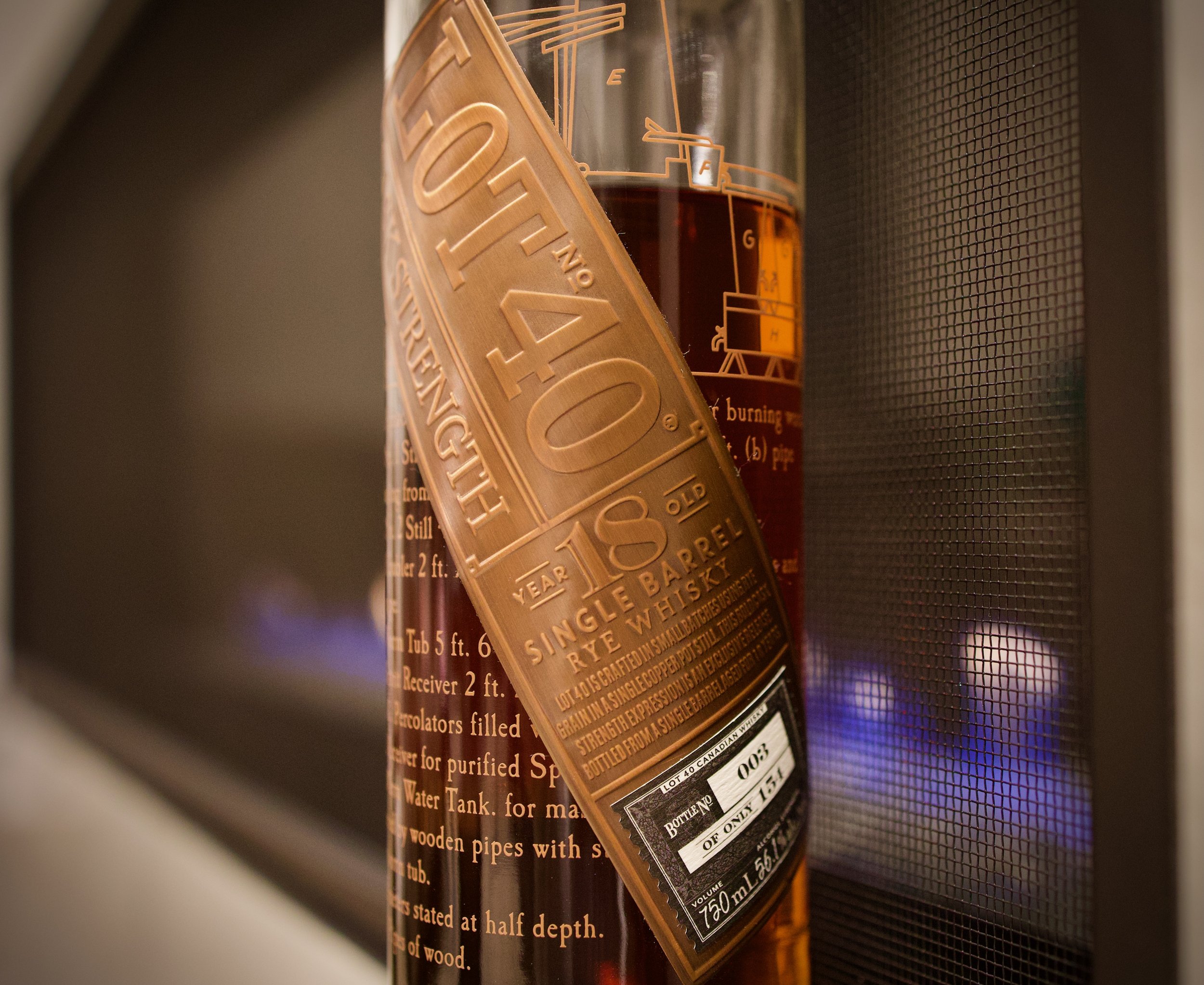Lot 40 18 Year Old Cask Strength Single Barrel
/Lot 40 Cask Strength whisky enjoys a cult following among Canadian whisky drinkers, one that is spreading worldwide as it continues to win awards. Lot 40, in all varieties, is 100% rye whisky. It’s aged in new oak and is more similar to American ryes than traditional Canadian ryes.
If you’re new to Canadian Whisky the tldr; Lot 40 is 100% rye whisky, it’s the flavour of Canadian ryes for many of our whiskies, and it’s regularly sold at a reasonable 43% ABV (86 proof) year-round (<$40 Canadian). The cask strength variety, though, is rare.
Each release is different. If you follow the lore, the original 2017 cask strength is the most cherished (12 year old), the 2018 (one year younger at 11 years old), is also loved, and the following 2019 release rolled with a controversy. I remarked whether to was “Lot 40”-sh enough, though the release was an inventive play (French oak finished) on a younger cask strength rye whisky. It also did terrifically well.
Out of nowhere, comes an 18 year old release.
COVID times threw a wrench into the Lot 40 Cask Strength release schedule. There is a high-proof dark oak release I’ll be reviewing later, that’s made it to the regular line-up, but otherwise the prized title of “cask strength” has had no contender since 2019.
Until, of course, a surprise drop of 130 bottles of 18 year old Lot 40 Cask Strength. I’m unsure of how many bottles were sold via the drop but there is promise of more coming out in the new year (they ask to sign-up directly for a chance to buy one). These are only available in Canada, and the few releases that made it out already are catching a high-price in secondary markets (which have questionable legality here in Ontario).
I managed to get a bottle by pure luck when the notice came out that the bottles were available for purchase. To my knowledge, because of the high value of this release, few bottles have been opened.
So what’s it taste like?
Out of all the releases, the original Lot 40 Cask Strength of 12 year variety was my favorite. For my palate specifically, it hit perfectly. Score wise, it’s still one of the better whiskies I’ve had.
By comparison, Lot 40 18 Year Old Cask Strength is the most similar to the 12 year old. Now, here are a few caveats in that statement—it is similar, but not the same. The extra years of aging have given it more of a syrupy note. It’s intensely sweet. You won’t be thinking cask strength when you have it. You’ll be thinking dessert whisky, decadence, and other such complex thoughts.
The flavour that has me most of all is the anise. Normally, I taste licorice, but this is sweeter and warmer. I will forever think of anise when I drink this whisky.
It is a single barrel product, not a complex oriented blend of unique barrels, so it won’t have that depth of found in American rarities like the Buffalo Trace Antique Collection. There’s less mystery to it. However, it’s an absolute flavour bomb of intensity and priced well by comparison to other rare American whiskies .
Tasting Notes
Nose: Unlike previous releases, this is all anise (instead of licorice). It’s sweeter. Familiar, but sweeter. Floral, concentrated, with apple and nutmeg and maple syrup sweetness on the nose. Over-time, black tea and boozy cherry notes come-out and play. It succeeds in not nosing nearly as boozy as the cask strength ABV indicates on the bottle.
Palate: Anise, black tea sharpness, dry vermouth-like sweetness, with butter and cinnamon rolled up into one wallop of a taste. There’s plenty of rye spice. It’s syrupy sweet on the palate, like syrup that’s laced in pepper spice and cinnamon. The finish is classic rye dry, buttery, and cinnamon. It’s a long finish and has the heavy traditional rye profile we’d expect from Lot 40 Cask Strength.
Conclusion: This is Lot 40 12 Year Old Cask Strength, syrupy concentrated. With a touch of water you’ll get more brown sugar notes and far more black peppery spice and licorice. In fact, this drink changes dramatically with a little bit of water. Not for the better or worse. It’s the same drink, just spread out a little in flavour as the notes hit at different points.
Score: 93.5




